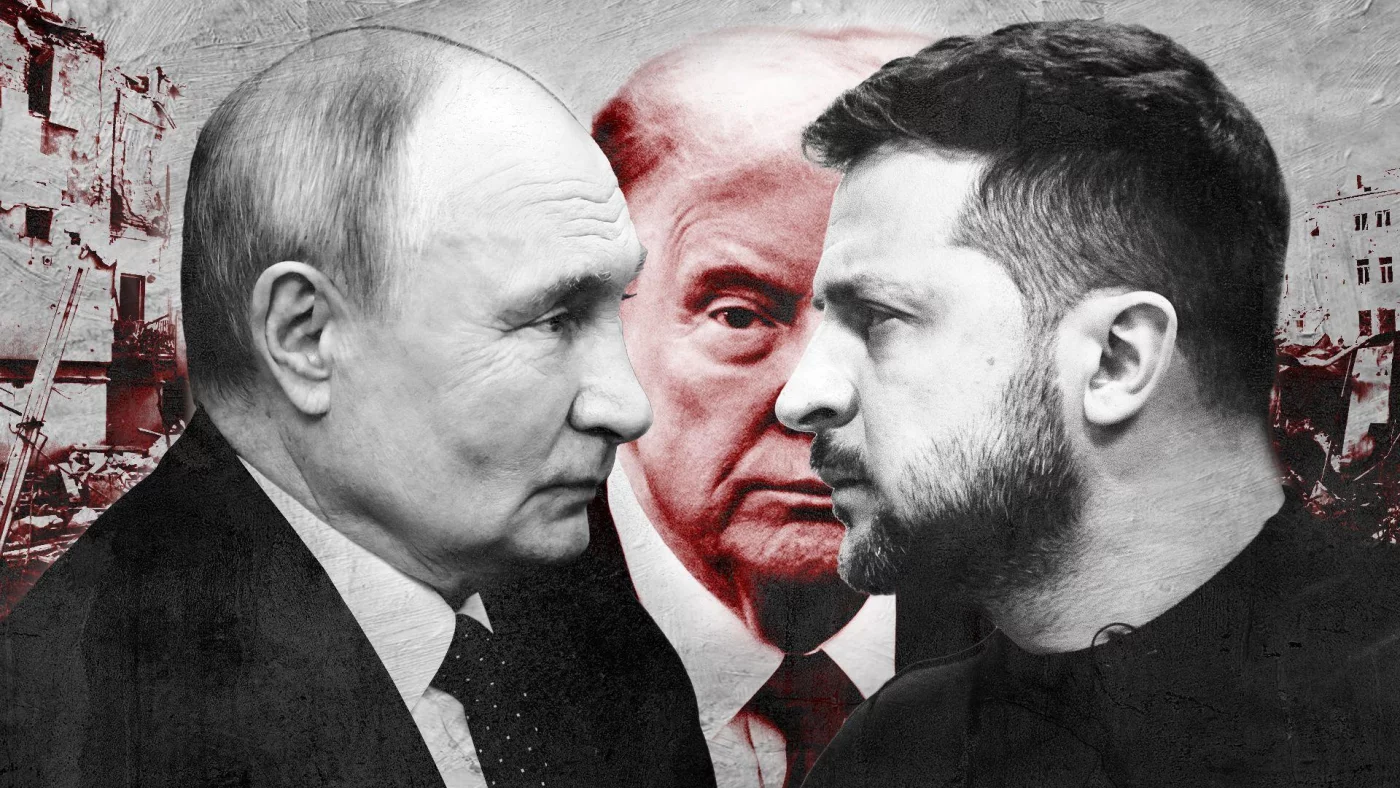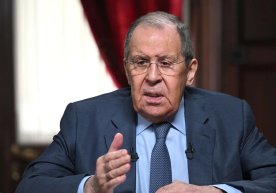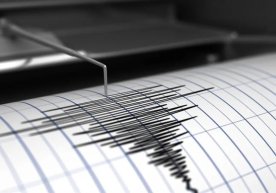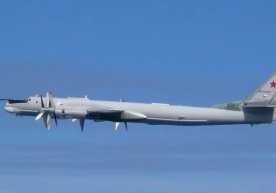
The new US president is making some new remarks almost every day about his plan to end the Russia-Ukraine war. At the same time, his tone towards Moscow is becoming increasingly tougher: in particular, he has promised to lower oil prices if Moscow does not stop its military actions.
In addition, he has appointed Keith Kellogg as a special envoy to defuse the conflict. Reuters and The Wall Street Journal reported that even before the election, Kellogg had advised Trump to put pressure on both Kiev and Moscow to achieve peace. At the same time, Trump openly criticized Zelensky for not starting negotiations in early 2022. Congratulating Trump on his inauguration, Putin confirmed his readiness for dialogue on the “Ukrainian conflict,” later adding that he has “trustworthy relations” with the American president.
The situation surrounding the peace talks is becoming increasingly tense. What do people in Kiev think about this? Meduza's special correspondent Liliya Yapparova spoke with Mykhailo Podoliak, an advisor to the head of Volodymyr Zelensky's office.
— For the past few months, everyone has been discussing peace talks. Do you think they will happen soon?
— First, we need to clarify the concept of peace. For Russia, this is an occupation, and for Ukraine, it is a chance to save its life. I believe that democratic countries are getting closer to this: such wars can only be stopped by forcing the aggressor state. They cannot be negotiated with, they can only be forced. I also see this in the new US president's changed rhetoric towards Russia. This gives rise to certain hopes.
— At the Davos forum, Trump also resorted to threats: he said that he would force Saudi Arabia and OPEC to lower oil prices, reduce Russia's income and stop its military actions in Ukraine. Can this be realized?
— This is not a threat. What is unexpected for many is that Trump is proposing solutions that could be effective. That is, sharply increase the cost of war for Russia and reduce its income on the global market. If they can lower the price of oil below $50, or at best, to $40, Russia will definitely lose a large amount of funds needed to continue the war.
Trump is not simply proposing conditional sanctions at the level of oil-consuming countries. He is saying that the decision to lower oil prices should be made by OPEC members and the Saudis, who have warm relations with the United States. This is a well-thought-out and quick way to force Russia to accept the world more adequately.
Whether Putin will understand this or not is another matter. So far, he is treating it as some kind of backstage game. He is saying, "Okay, you make some statements, and we will agree on the rest behind the scenes." I think he is making a big mistake.
— Doesn't this kind of pressure seem to you to jeopardize the peace talks? After all, everyone knows that Putin does not like being pressured.
— Putin may or may not like something as long as he has room for maneuver. Now he is very dependent. I watched his last video conference with Xi Jinping [on January 21, 2025] — Xi spoke with restraint, even irony, looking at Putin with a slight irony. Putin, on the other hand, was modest, as if trying to show himself on the bright side: “Look, we can do this, we can do this too.” He seemed to be a man with no self-confidence, whose reputation was in the red zone. Because he really cannot make a number of decisions independently — he cannot take a single step without the support of major powers.
I don’t think Trump will pay attention to Putin’s emotional state either. Putin is not his equal.
— Trump promised to stop the war in one day, but he could not achieve this, and he tasked his special representative for Ukraine and Russia, Kate Kellogg, with ending the conflict in 100 days. Is this a realistic timeframe?
— This is a realistic timeframe for the task facing Kellogg. Trump has clearly stated it: we need to develop a scenario that satisfies the United States and Ukraine and that will actually end the war. And I would suggest paying special attention to what [US Secretary of State Marco] Rubio said. He said that the war should be resolved in such a way that fighting should not resume within three to four years.
So, the plan to end the conflict should guarantee the protection of the sovereign rights of Ukraine and Eastern Europe in general, and ensure the restoration of international law as the standard for interstate relations.
— Did Ukraine have time to hold consultations with Kellogg? He was scheduled to visit Kiev in early January, but for some reason postponed his visit.
— No, there have been no talks with Mr. Kellogg yet. I think he is currently developing the US position on Russia. Russia is not yet ready for an adequate dialogue.
— What do you think of Kellogg's position on ending the war? He advocated the use of the "stick and candy" method during the negotiations - for example, a sharp reduction in US military aid to Ukraine was threatened.
— All these were considerations when Kellogg and Trump did not delve deeper into the issue of war. But nothing works without a stick in relation to Russia. Kellogg is working on developing this very stick.
Effective work against Putin can only be done through threats and coercion. He needs to be explained the price he will personally pay. In the future, he will lose not only the opportunity to finance the war, but also the opportunity to solve domestic social problems. Tensions will increase within Russia, and Ukraine, I hope, will be supplied with long-range weapons. This will lead to what Putin fears most: loss of control and removal from office.
— What do you think Putin expects from Trump? On January 20, the Russian president said, for example, that he was “ready for dialogue with the new US administration on the Ukrainian conflict” and wanted to achieve “a long-term peace.”
— Putin likes to build his foreign policy on lies, and he himself expects to be deceived. He hopes for an agreement behind the scenes instead of global discussions. That is, public statements calling for peace are made, but in reality, negotiations are taking place behind the scenes, and he is trying to deceive and exert pressure there: "We gave you this, and you give us this." But in these expectations, Putin is making a big mistake.
— According to Trump's statement, preparations are underway for his meeting with Putin. Has the Ukrainian side been approached on this issue?
— The conversation between Trump and Putin falls within the competence of the US administration. I think that Trump really needs to meet with Putin, so that he understands how deep his mental decline is. Putin will reveal his true "I", and Trump, having assessed how inadequate he is, will decide not to expect logical conclusions and rational actions from this person.
After that, it is necessary to exert strong economic pressure on Russia: lower oil prices, impose new sanctions on individuals around Putin, seize their assets abroad, use frozen assets, and block ways to circumvent sanctions.
— On January 21, Zelensky announced that he was working on organizing a meeting between the presidents of the United States and Ukraine. Is there an understanding of the program of the meeting, what issues will be discussed?
— Preparations for this meeting are being carried out at the level of the Ministry of Foreign Affairs and the presidential administration. The topics of the meeting are open and clear: for us, security guarantees, the inviolability of borders, our clear place in the international security system, a program for the restoration of Ukraine, diplomatic, military and financial assistance, and strengthening partnership relations are important.
— Is there clarity in Kiev regarding trilateral talks between Ukraine, Russia, and the United States? In what format are these being discussed?
— I don’t think this is an issue that will be resolved tomorrow or today. For now, it is necessary to hold other trilateral negotiations - the US, the European Union and Ukraine. Our common position on ending this war must be fully coordinated. There may also be separate dialogues between the US-China and the US-Global South. Only then can we talk about trilateral negotiations.
— Volodymyr Zelenskyy announced the terms of the negotiations with Russia on January 23. The main demand is to provide security guarantees to Kiev: Western countries, including the US, should send at least 200,000 peacekeepers to Ukraine, the Ukrainian president said. As an alternative, Ukraine's accession to NATO was also proposed. How do your partners in Europe and the US react to these demands?
— For Putin, expansion has now become the only way to stay in power. Therefore, if we really want to ensure long-term peace, there are several ways. The first is Ukraine's accession to NATO. The second is security guarantees on the Israeli-US model, that is, Israeli airspace will be protected from American air defense systems and aviation. The third is to send peacekeeping forces; this proposal is currently being discussed with France, Britain and the countries of Northern Europe. Given that the front line is 1,300 km long and there are more than 600,000 Russian soldiers in the occupied territories, the peacekeeping contingent should number 150,000-200,000 people.
The Ukrainian president says: “Here, there are options, there is no other way.” It is not right to formally declare to Putin that we have ended the war and expect him to abandon expansionism and provocations.
— Putin, however, said that he absolutely does not accept Ukraine’s membership in NATO. He stated that Russia is ready for peace talks only if Ukraine withdraws its troops from the four regions that Moscow previously annexed. With such a difference in positions between Kiev and Moscow, can we expect any results from the talks?
— Of course, I believe it. But this requires coercion, no other way will work. The good intentions of the aggressor state cannot be trusted. Our partners — primarily the United States — are beginning to understand that it is impossible to talk to Russia in a soft tone. It can only be forced through economic and military measures.
— Trump’s plans for resolving the conflict do not yet include Ukraine’s accession to NATO. How do you intend to ensure that the country joins the alliance?
— Through discussions and rational arguments. Also by creating a wide network of international politicians who support this idea. For example, Ukraine can give Europe an important strategic advantage: a joint European military group can be formed on the basis of our armed forces. These forces can provide security without the need for US assistance.
— Former US President's national security adviser John Bolton expressed concern that Trump will try to force Ukraine to sign an unfavorable peace agreement. Do you share this concern?
— No, I am not worried. Because this would be a serious blow to US prestige. This would mean allowing Russia to continue its aggressive actions. There are opportunities to end the war in a completely different way. This would also help reduce the instability that Russia is causing.
— The General Staff of the Ukrainian Armed Forces reported on January 22 that the situation at the front remains difficult, with Russian troops retaining superiority in personnel and equipment. What is the situation on the front lines now?
— Very difficult, especially in the Donetsk direction. Russia now has much more ammunition, armored vehicles, artillery, and cheap manpower. The Russian army is using the tactic of organizing attacks in small groups along the front line and capturing small bridgeheads. They aim to expand these points and increase their superiority.
However, the war continues, and if more missiles, mortars, and rocket launchers begin to be delivered to Ukraine, the situation may stabilize. Read “Zamin” on Telegram!
Ctrl
Enter
Found a mistake?
Select the phrase and press Ctrl+Enter Related news
Information
Users of Меҳмон are not allowed to comment this publication.
Users of Меҳмон are not allowed to comment this publication.














